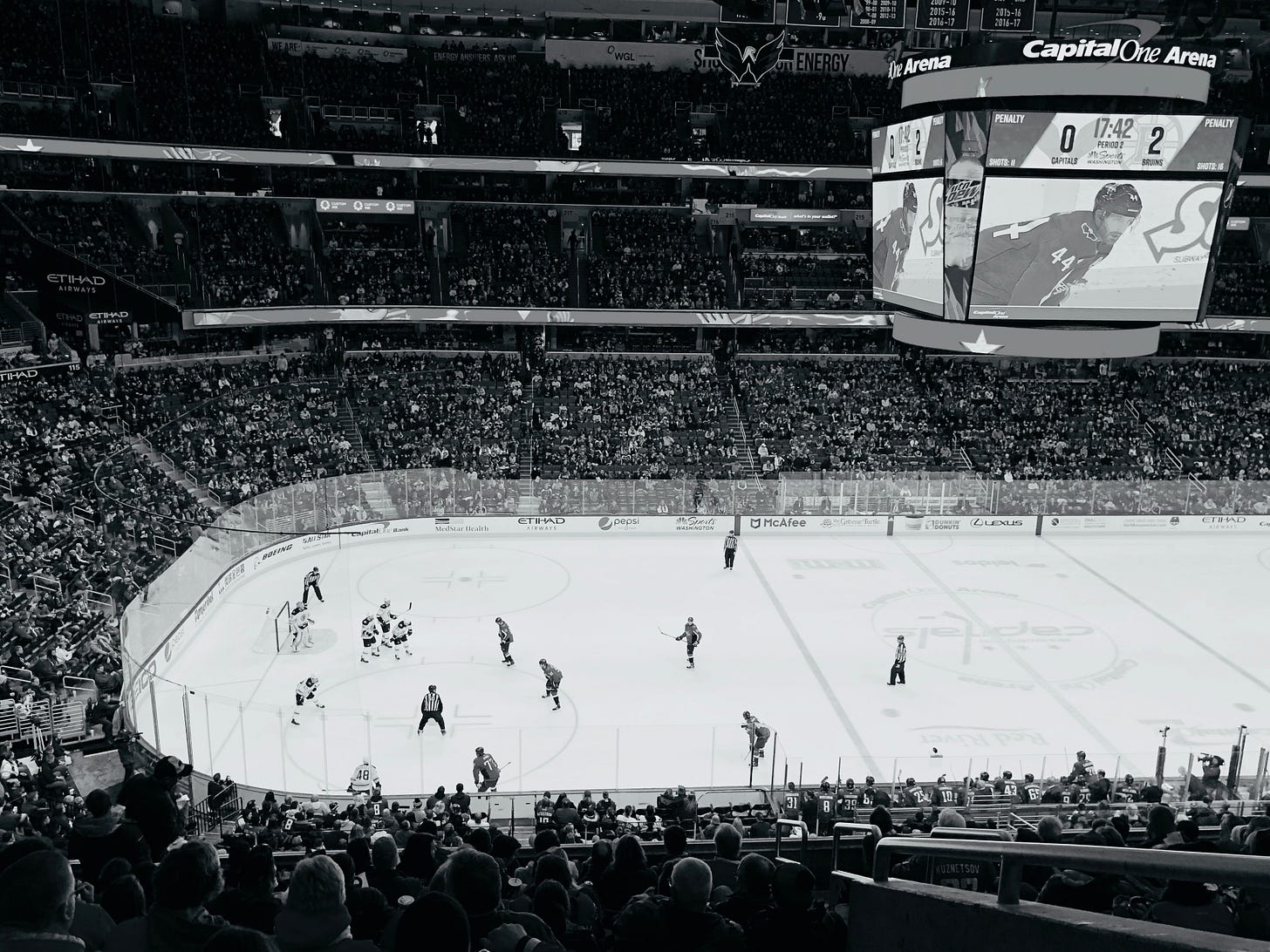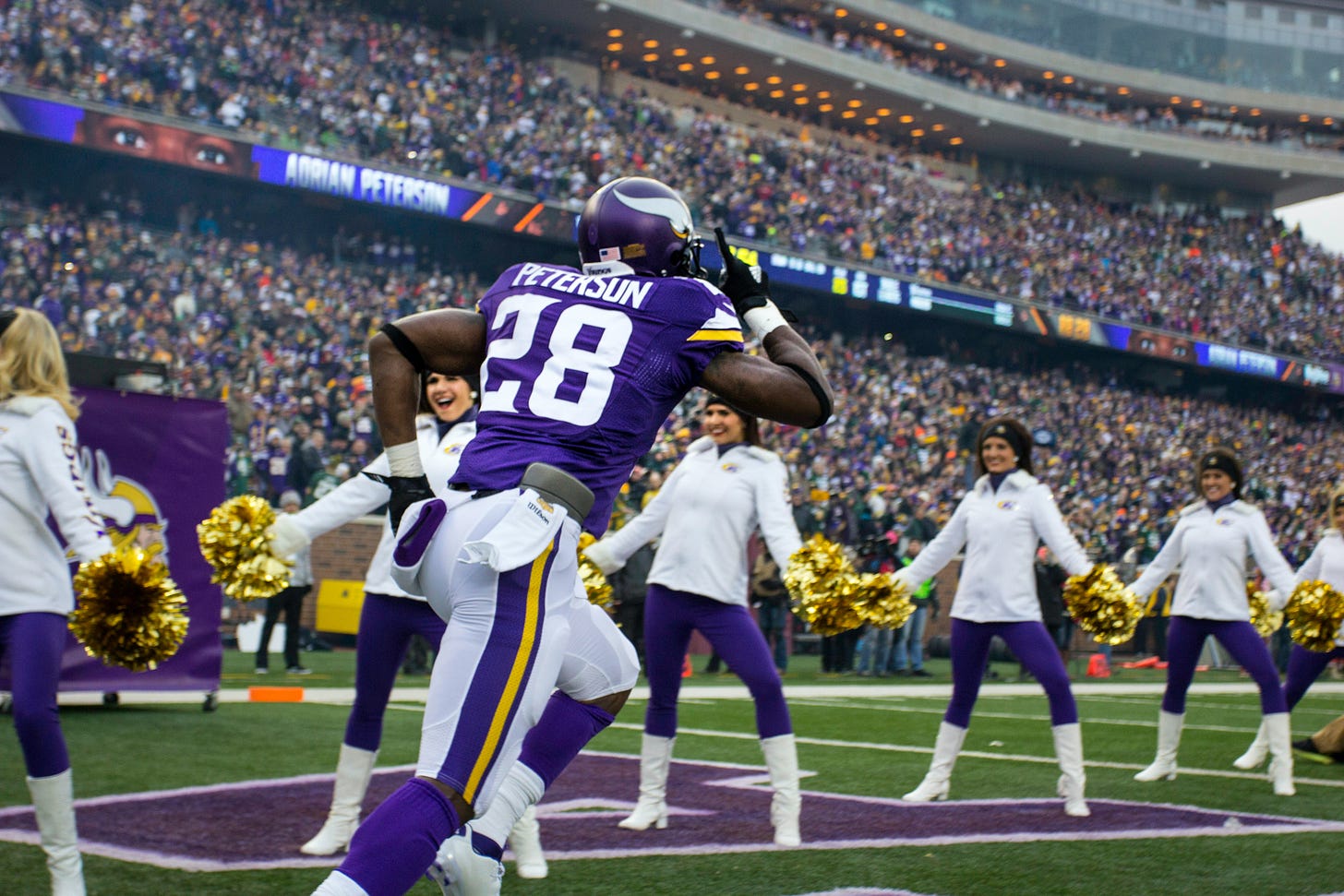We were early to recognize the attractiveness of sports media rights and their scarcity value. We noted in 2012 (and still believe) that, in an age of DVRs and video subscription services, sports are still largely viewed live, which gives advertisers an effective and efficient way to reach audiences that are both large and captive. Accordingly, we see rights to air sports content as having the potential to (further) increase significantly in value, with positive implications for the value of professional sports franchises (which own or participate in the monetization of these rights).
Current Average Annual Broadcast Rights Deals of Select Professional Sports Franchises
For many years, we have also noted the undervaluation of publicly traded sports teams in the stock market. As part of our institutional research service, we have written extensively on why we believe that both Atlanta Braves Holdings (which we initially profiled in 2016), which owns the Atlanta Braves baseball franchise and valuable real estate adjacent to Sun Trust Park, and Madison Square Garden Sports, whose main assets include the New York Knicks and the New York Rangers, are selling in the stock market for significantly less than a private buyer would pay for these assets.
The recent sales of the Phoenix Suns for ~$4 billion (valued at $2.7 billion and $3 billion in 2022 by Forbes and Sportico, respectively) and the Washington Commanders for $6 billion (with a prevailing value of $5.6 billion from Forbes and $4.78 billion from Sportico), as well as the ongoing bidding war for Manchester United, reinforce our view that there is a vibrant market for these scarce assets. If the Knicks, the Rangers, or the Braves were ever put up for sale, we expect that they would garner tremendous interest at prices significantly higher than their current publicly traded stock price. In short, these franchises are the epitome of (if you’ll pardon the expression) trophy assets.
In addition to the demand from high-profile billionaires, the potential pool of buyers has increased dramatically in recent years as MLB, the NBA, and the NHL have allowed private equity firms to purchase minority stakes in sport franchises. The NBA went a step farther in 2022, enabling ownership by sovereign wealth funds, pension funds, and university endowments.
The Atlanta Braves Holdings became its own separate publicly traded stock last week (having previously been a tracking stock under the Liberty Media umbrella), a move that could pave the way for its sale. Accordingly, we see this as the opportune time to revisit the valuations of publicly traded sports teams provided by Forbes and Sportico.
As the following tables show, valuations of sports franchises have continued their long-term compounding trend, exhibiting healthy growth over the past 3 years. Additionally, the valuations ascribed to the Knicks, Rangers, and the Braves significantly exceed the stock market valuations of Atlanta Braves Holdings and Madison Square Garden Sports—which currently offer (in our opinion) the best way for stock market investors to benefit from the continued rise in valuations of major U.S. professional sports franchises.
The valuations provided by Forbes and Sportico serve as the starting point for negotiating team sales and/or minority stakes. (In fact, Ryan Smith acknowledged that he looked up the Forbes value for the Utah Jazz when negotiating to buy that team from the Miller family.)
In a change of pace from our trademark lengthy analyses of individual companies, we’ve included snapshots of the various professional sports leagues that open a window on the opportunities, developments, and trends associated with each, to which we’ve added notes highlighting some of the most interesting insights.
National Basketball Association
After having named the New York Knicks the most valuable NBA team in both 2020 and 2021, in 2022 both Forbes and Sportico gave that accolade to the Golden State Warriors.
By contrast, Forbes named the Memphis Grizzlies the league’s least valuable team in 2020 and 2021. In 2022, it transferred that dubious distinction to the New Orleans Pelicans, which Sportico picked as the least valuable team for that entire period, with a value of “merely” $1.63 billion.
The average value of NBA teams has been increasing each year, with a particularly pronounced jump seen in 2022, as pandemic restrictions ended. As average team values have increased, so has the difference in the valuations of the most and least valuable teams.
Forbes expects the value of NBA franchises to keep growing, driven in large part by the league’s next national media deal, slated for the 2025–2026 season, which analysts predict should be worth at least double the current $2.66 billion annual agreement with ESPN and Turner Sports.
Major League Baseball
Both Forbes and Sportico have valued the New York Yankees at over $7 billion, higher than any other baseball franchise. This figure is well above the second most valuable team, the Los Angeles Dodgers, which they value at $4.8 and $5.2. billion, respectively.
After failing to reach a $1 billion Forbes valuation in both 2021 and 2022, the Miami Marlins, designated the least valuable team by both Forbes and Sportico, broke the billion-dollar threshold in 2023.
In recent years the average value of a baseball team has been increasing at a much lower rate than seen in other sports, largely because the increases in MLB’s media contracts have lagged those of other professional leagues. For 2023, Forbes calculated an average team value of $2.3 billion (up 9.8%), whereas Sportico put the figure at $2.4 billion (up just 2.0%).
MLB is home to the greatest spread between the most and least valuable teams, with Forbes valuing the New York Yankees at $7.1 billion in 2023 but the Miami Marlins at $1 billion.
National Hockey League
The value of NHL teams is far less than the other major North American sports leagues, with fewer than half of its teams valued at $1 billion or more.
Among the franchises, Forbes valued the New York Rangers the highest, at $2.0 billion in 2021 and $2.2 billion in 2022. The team has been at the top of the Forbes list for the past 8 years, but Sportico valued it behind the Toronto Maple Leafs both years, at $1.9 billion in 2021 and $2.0 billion in 2022.
Both Forbes and Sportico single out the Arizona Coyotes as the least valuable team for both years, with valuations never reaching even $500 million.
However, the average valuation of NHL teams is increasing, with Forbes estimates showing a rate of increase almost double that seen for MLB. The growth of the NHL is evident in the new media contracts the league is signing. Forbes describes the new TV deals as a boost to the top line, as the networks will pay the league a combined $650 million annually over 7 years, nearly 3x the previous deal with NBC. (The Canadian national media contract is separate.)
For Forbes, revenue per team averaged $185 million last season, with average operating income of $49 million, almost double the previous high of $25 million, seen in both 2019 and 2018.
National Football League
Both Forbes and Sportico have named the Dallas Cowboys the NFL’s most valuable team for many years, with the Forbes valuation having risen from $5.7 billion in 2020 to $8 billion in 2022 (the team’s 14th year atop the list). This places the franchise well above the average team valuation of $4.5 billion in 2022.
Both Forbes and Sportico named the Cincinnati Bengals the NFL’s least valuable team in 2022, a position it held in 2021 (per Sportico, though Forbes gave that distinction to the Buffalo Bills) and in 2020. A team’s location seems to have a greater effect on its valuation than its on-field performance does, given the impressive records of the Bengals (who reached the Super Bowl in 2022) and the Bills. (Following the age-old adage “location, location, location,” teams in large metro areas with large passionate fan bases tend to be valued highly regardless of their performance.)
Forbes estimates that 61% of NFL team revenue comes from media, followed by 10% from general seating, 10% from sponsorship/advertising, 9% from premium seating, and 9% from other sources of income.
Thanks for reading!
—Boyar Research
Important Disclosures. The information herein is provided by Boyar’s Intrinsic Value Research LLC (“Boyar Research”) and: (a) is for general, informational purposes only; (b) is not tailored to the specific investment needs of any specific person or entity; and (c) should not be construed as investment advice. Boyar Research does not offer investment advisory services and is not an investment adviser registered with the U.S. Securities and Exchange Commission (“SEC”) or any other regulatory body. Any opinions expressed herein represent current opinions of Boyar Research only, and no representation is made with respect to the accuracy, completeness or timeliness of the information herein. Boyar Research assumes no obligation to update or revise such information. In addition, certain information herein has been provided by and/or is based on third party sources, and, although Boyar Research believes this information to be reliable, Boyar Research has not independently verified such information and is not responsible for third-party errors. You should not assume that any investment discussed herein will be profitable or that any investment decisions in the future will be profitable. Investing in securities involves risk, including the possible loss of principal. Important Information: Past performance does not guarantee future results.
This information is not a recommendation, or an offer to sell, or a solicitation of any offer to buy, an interest in any security, including an interest in any investment vehicle managed or advised by affiliates of Boyar Research. Any information that may be considered advice concerning a federal tax issue is not intended to be used, and cannot be used, for the purposes of (i) avoiding penalties imposed under the United States Internal Revenue Code or (ii) promoting, marketing or recommending to another party any transaction or matter discussed herein. Clients of an affiliate of Boyar Research and employees of Boyar Research own shares in Madison Square Garden Sports & Liberty Braves.













